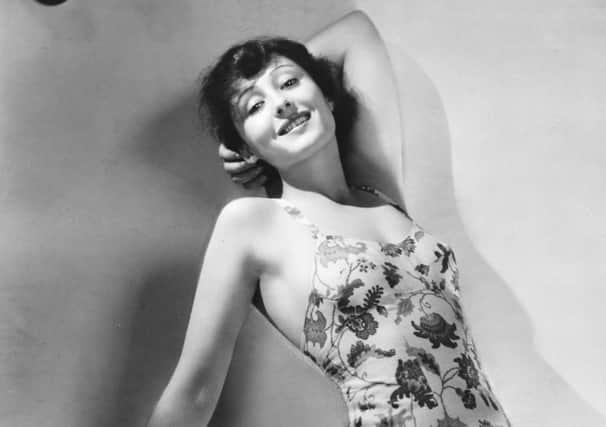Obituary: Luise Rainer, actress


It is likely that only serious film fans, trivia buffs and the elderly will now be familiar with Luise Rainer, but there was a time before the Second World War – admittedly a very brief time – when she was regarded as one of Hollywood’s brightest stars and one of cinema’s finest actresses.
A dark-haired beauty in her youth, she had the distinction of being the first person to win two acting Oscars, both for best actress. And she did it in consecutive years – only Spencer Tracy, Katharine Hepburn, Jason Robards and Tom Hanks subsequently matched her feat.
Advertisement
Hide AdAdvertisement
Hide AdA German-born Jew, Rainer left Europe for Hollywood in the 1930s, just as the shadow of Nazism spread across Europe.
She won her first Academy Award in 1937 for her performance as Anna Held, a real-life French singer, in The Great Ziegfeld, a biopic about the famous impresario. In the film she is married to him, but they divorce, though she is still in love with him.
These were the early days of the Oscars, without all the pre-ceremony odds analysis that goes on now. Carole Lombard and the recently widowed Norma Shearer were the favourites. Rainer thought it so unlikely she would win that she did not attend the ceremony.
The results were revealed to press and studio bosses slightly ahead of the presentation and Rainer had to rush to the venue to pick up her prize.
Her second Oscar-winning role could not have been more different. She played a Chinese peasant in the film of Pearl Buck’s Pulitzer-winning novel The Good Earth. Hollywood had a more relaxed view on ethnic casting back then, especially when it came to leading roles.
Greta Garbo was expected to win the Oscar for her performance as the doomed heroine in Camille. But voters were impressed by the contrast between Rainer’s two films and she won a second award.
Having pulled off this double-whammy, Rainer might have seemed poised for Streep-like dominance of the awards business for years to come. But it was pretty much downhill all the way after that. And it was a pretty quick journey.
Irving Thalberg, the legendary producer, who was Rainer’s mentor (and Shearer’s husband), had died, and she clashed over money and roles with MGM, the studio to whom she was under contract.
Advertisement
Hide AdAdvertisement
Hide AdHer marriage to the famous American playwright Clifford Odets collapsed, her contract with MGM came to an end, she returned to Europe and effectively ended her film career.
Her Hollywood career lasted only three years, during which she made eight films. The only other one of note was the Strauss biopic The Great Waltz. Not quite a Hollywood legend, Rainer appeared in a lot more quizzes than she did films.
During the last 70 years, she made three more minor films, though she also made very occasional guest appearances in American television series.
After turning her back on Hollywood she did voluntary work for refugee children and she returned to theatre, where her career had begun.
The daughter of a wealthy businessman, she was probably born in Dusseldorf, though her entry in Who’s Who cites Vienna. She grew up largely in Hamburg and Vienna. Her father wanted her to attend finishing school and make a “good marriage”. But Rainer had a rebellious spirit. She was a keen athlete and mountaineer and took up acting in her teens as an outlet for her energies.
She made a name for herself with Max Reinhardt’s company on stage in Berlin and Vienna and was spotted by an MGM talent scout who thought she had the potential to be the next Greta Garbo.
She had already appeared in a few German-language films, but later said she had no interest in film and really just wanted to concentrate on theatre.
Years later she said: “I won Academy Awards for my first and second pictures. Nothing worse could have happened to me… The industry seemed to feel that having an Academy Award winner on their hands was sufficient to overcome bad material.
Advertisement
Hide AdAdvertisement
Hide Ad“Now actors can take only the roles they want to. When you were under contract, you had to do roles whether you liked them or not.”
Latterly she lived in London and spent much of her time painting.
She had married for a second time in the 1940s to Robert Knittel, a publisher, with whom she had a daughter, who survives her.